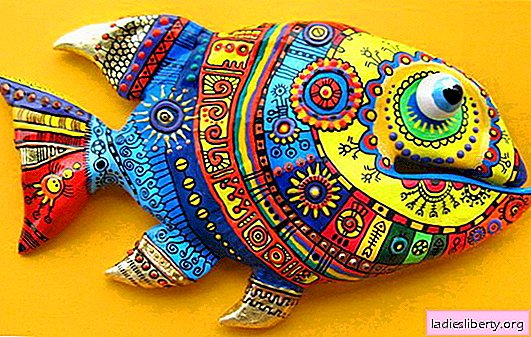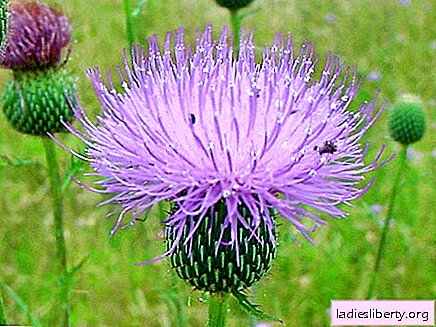
Holidays December 28
Spain celebrates laughter day
December 28th is a day of remembrance of the Holy Innocent Babies of Bethlehem. In those days, Herod, distraught about unlimited power, gave a terrible order to kill all newborns on this day. The reason for such a terrible command of the king was the news of the birth of Christ the Savior, brought to Herod by the Magi. Herod knew about the ancient prophecy and was afraid of its fulfillment, because he believed that Christ would take away his throne and power. However, Herod miscalculated, and little Jesus was saved. As soon as Herod conceived such a crime, the Angel of the Lord announced the danger of Joseph, and he, following the instructions of the Holy Man, went with the baby to Egypt. Herod, having carried out a massacre in Bethlehem, believed that he had killed his rival. Some theological sources nevertheless suggest that the true purpose of the coming of Christ was not quite objectively reflected in the gospel. A number of scholars believe that Christians hypothetically hoped for a seizure of political power. After all, the establishment of a new faith without the support of the state was very problematic. Do not forget that Israel at that time was under the rule of Rome, and the desire of certain sections of society to overthrow the Roman government and establish a new faith in an independent state.
International Cinema Day
On this day, the whole world celebrates cinema day. It was on December 28, 1895, in Paris, on the famous Capuchin Boulevard, that film shows from the Lumiere brothers were first shown. Visitors were shown short films: “Arrival of the train”, “Exit of workers from the factory” and “Watered waterer”. For the first time, free films were shown back in 1894. They quickly gained popularity, and thereby buried the development of animation for a while. In deep despair, the founder of the animation, Emil Reynaud, broke his apparatus and threw it into the river along with ribbons. The premiere of cinema in Russia took place in January 1895, during the congress of Russian doctors and writers. And the screening of the first Soviet film took place in October 1908. The very first full-length domestic film was the film "Battleship Potemkin" directed by Sergei Eisenstein. The first sound film appeared on the screens in 1927. The next achievement was the appearance in 1935 of the first full-length color film - "Becky Sharp", it was made in Hollywood.
Day of the Holy Innocent Babies of Bethlehem
December 28th is a day of remembrance of the Holy Innocent Babies of Bethlehem. In those days, Herod, distraught about unlimited power, gave a terrible order to kill all newborns on this day. The reason for such a terrible command of the king was the news of the birth of Christ the Savior, brought to Herod by the Magi. Herod knew about the ancient prophecy and was afraid of its fulfillment, because he believed that Christ would take away his throne and power. However, Herod miscalculated, and little Jesus was saved. As soon as Herod conceived such a crime, the Angel of the Lord announced the danger of Joseph, and he, following the instructions of the Holy Man, went with the baby to Egypt. Herod, having carried out a massacre in Bethlehem, believed that he had killed his rival. Some theological sources nevertheless suggest that the true purpose of the coming of Christ was not quite objectively reflected in the gospel. A number of scholars believe that Christians hypothetically hoped for a seizure of political power. After all, the establishment of a new faith without the support of the state was very problematic. Do not forget that Israel at that time was under the rule of Rome, and the desire of certain sections of society to overthrow the Roman government and establish a new faith in an independent state.
Kulubi (St. Gabriel's Day)
Archangel Gabriel is a popular patron saint among the peasants of Ethiopia. In honor of him, annual colorful celebrations are held. Huge crowds of pious people gather on this holiday. The Orthodox, baptized Tuahhedo, celebrate the festival with colorful processions and ceremonies. From all over Ethiopia people of different ages, different classes and religions gather, their number reaches one hundred thousand people, and sometimes more. The pilgrims come to church, fulfilling a vow, ask that they "hurt", or sincerely thank, for which it has already been fulfilled and bring generous offerings to the church. Ethiopians most often use candles or umbrellas of all kinds and sizes as offerings. In turn, the church collects all this and resells to believers who come to the church, and with the proceeds they render all possible assistance to the poor. Often, some pilgrims carry the last few kilometers on their backs heavy stones up the hill to the church. The children who were born thanks to the prayers of Gabriel are brought to be baptized in this church after childbirth. Many children are baptized on this holiday, and most of them are named after St. Gabriel.
December 28 on the folk calendar
Trifonov day
On this day, believers celebrate the memory of St. Tryphon, he lived in the sixteenth century on the Kola Peninsula. Tryphon himself was born in Novgorod and lived in the family of a clergyman. According to legend, one day he heard a voice that ordered him to go north. Tryphon obeyed and went to the Kola Peninsula and settled on the river, where he began to preach the Gospel among local residents. After some time, Tryphon built the Church of the Annunciation, and founded a monastery with him in the name of the Holy Trinity. In this monastery he took tonsure and took the name Tryphon, and his real name is Mitrofan. Later he was ordained a hieromonk, and then became abbot of the monastery. In ancient Russia, the Monk Tryphon was revered as the intercessor of sailors. In case of danger, sailors read prayers to this particular saint. Even on prosperous days, sailors and all those connected with the sea try to go to church on this day and light a candle to the Monk Tryphon. On this day, as people noticed, the day begins to increase, and the sun sends its children to the earth, these are the rays that drove off the evil spirits. Meanwhile, the sun's rays were still weak, and they needed help. To help them, it was necessary in the early morning to take out hot coals to the courtyard and pour it into the snow, thus scaring away evil spirits. Usually on this day there was severe frost on the street, according to the weather in Trifonov the weather was predicted for the month of March.
Historical events December 28
1065 year founding of Westminster Abbey
On December 28, St. Peter's Church was erected, which was consecrated and declared the first and main church building of Westminster Abbey. Officially, the abbey opened a year later, and subsequently became the seat of the coronation of the British monarchs. The first king crowned at Westminster was William the Conqueror. In addition to the place of coronation of kings, the abbey also became the tomb of prominent people in England. Here were buried, the great Queen of England, Elizabeth I, composer Friedrich Handel, scientist Isaac Newton and others. There is also a memorial - the burial of an unknown soldier who died during the First World War. The last refuge was found here by poets: D. Chaucer, S. Johnson, Dickens and others. In addition, many monuments and memorials have been erected on the territory of the abbey, in which D. Garrick, Milton, Keats, Shelley, T. Eliot and many others are immortalized. Thus, Westminster became not only the spiritual and coronation center of England, it is primarily the historical and cultural center of Britain, a stronghold and symbol of the state. And besides, a huge museum.
1908 year terrible earthquake in Sicily
December 28, 1908 on the island of Sicily in southern Italy, there was a terrible earthquake overnight, destroying several cities and many surrounding villages. The main victim of the elements, was the city of Messina. After all, the city suffered not only from the earthquake itself, but also from the tsunami caused by tremors. The strength of tremors reached 7.5 points, and the height of the tidal wave reached 10 meters. More than seventy thousand people died from the impact of the elements, thousands are considered missing. Ironically, the Russian writer Maxim Gorky was in Italy at that time, becoming an unwitting witness to the unfolding tragedy. As soon as Gorky found out, he immediately departed about the incident, to the scene of the disaster. And upon returning home, he described the horror of what had happened. According to Gorky's descriptions, the whole scale of the disaster becomes clear, as the writer writes, the destruction was so great that the city resembled a pile of stones strewn with the bodies of the dead. As it turned out later, the cause of the total destruction was not so much the power of the tremors as the proximity of the earthquake epicenter to Messina. Immediately after the tragedy, a Russian ship came to the aid of the affected city, drifting in the waters of Sicily.
1968 year Israeli Air Force flight to Beirut International Airport
Special operation of the Israeli Air Force against the Lebanese civilian air fleet. The reason for the punitive operation was the terrorist attacks carried out by Arab militants against Israeli civilian aircraft. Air traffic began on December 28, 1968, combat helicopters, fighter planes and attack aircraft participated in the raid. The Israeli army used a smoke screen, blocked approaches and entrances to the airport. As a result of the raid, the Israelis managed to destroy more than half of the Lebanese civilian fleet, the civilian population was not injured. After the incident, the Lebanese side announced multimillion-dollar losses and the almost complete destruction of the civilian fleet. Lebanon requested assistance from the international community. A number of Arab states provided material assistance to Lebanon, Jordan, Morocco and Kuwait transferred several civilian liners to the Lebanese. Israel’s barbaric actions caused a strong international response, the UN and a number of G8 countries threatened Israel with sanctions and international isolation.
1905 year Sochi Republic
Pseudo State education of workers and peasants, which did not exist long in the territory of modern Sochi. The so-called “Sochi Republic” grew up on the crest of the political events of 1905, when similar rebellious formations appeared in different parts of the empire as a result of a popular uprising. The "Republic" lasted no more than a week and fell under the blows of the tsarist troops. The spark of rebellion was an uprising in the Khostinsky and Central region of present-day Sochi. The fighters of the "republic" were numerically superior to the tsarist troops, but inferior to them in military training and experience. Cossacks, police detachments and the border garrison also took part in the suppression of the rebellion. The mission was completed by the landing of government troops from the sea. On January 5, 1906, the head of the Sochi Special Military District, Rosalion - Soshalsky V.I., reported to Emperor Nicholas about the suppression of rebellion in the district entrusted to him.
Born on December 28
Ivan Konev (1897-1973), Army General, Marshal
The future commander was a native of a peasant family. Ivan began his military career on the fronts of the First World War. After the revolution, he joined the Bolshevik government and joined the ranks of the Communists. He took part in the civil war. In 1934, Ivan Stepanovich graduated from the Frunze Military Academy, and was soon appointed adviser to the newly created Mongolian army. Then he becomes the commander of the Soviet Far Eastern group. Probably, this saved Konev from the mass Stalinist repressions that took place in the thirties. At the beginning of the war, Konev commands one of the armies of the Southwestern Front. Then he was sent to the defense of Smolensk. After Smolensk there was a heavy defeat near Vyazma. The threat of execution hung over Konev, from the undeserved reprisal he was saved by G. Zhukov. In the battle of Moscow, Ivan Stepanovich truly showed his military talent, the Germans from Moscow were driven back from Moscow. Marshall took part in the Battle of Kursk, during which, a large German group of tank troops was destroyed by Soviet troops.
Konev also took part in the capture of Berlin. After the war he was commander of the central group of forces and deputy defense minister of the USSR. He was awarded orders and medals of the USSR and countries liberated from fascist occupation.
Woodrow wilson (1856-1924), US President
28 The President of the United States was born on December 28, 1856, in the town of Staunton. Successfully graduated from college and University of Prison. Then Woodrow teaches at the university for several years. Both students and teachers love him. In 1902, Woodrow becomes the rector of the university, within the framework of this educational institution, conducts educational reform. He tries himself in literature and publishes many books. In 1910, Wilson was elected state governor, and a year later the Democratic Party invited Wilson to run for president. In 1912, Woodrow Wilson becomes President of the United States. The domestic policy of the new president will be called, "New Democracy," while the foreign policy is based on world hegemony in the United States. The president dreamed of creating a fundamentally new international organization, a kind of prototype of the UN. In 1918, Wilson personally drafted the Charter of the League of Nations, and came close to realizing his dream of creating an interstate organization. However, the US Senate did not accept the president’s proposal and did not ratify the creation of the League of Nations. In 1919, Wilson leaves the political life of the country, due to severe nervous illness.
Linus Torvalds (1969 ...), Finnish programmer
Linus Torvalds was born on December 28 in Helsinki. He became interested in mathematical sciences early. He graduated from the University of Helsinki with a master's degree in cybernetics. He currently resides in the United States. He became famous thanks to the Linux operating system he created. In 1991, Linus uploaded the source code for the version sold under the terms of the GNU-GPL. This move interested the community of programmers. Linus' open source code allowed him to combine his ideas and web designs into a single version of the UNIX system. Soon, the popularity of the innovative project has grown to such an extent that the Linux system has become a self-contained operating system, in demand around the world. Currently, Linux is used and installed on information media in millions of copies. The system successfully and stably operates both home PCs and mobile phones, as well as powerful servers of large corporations and government agencies. The software community created by Linus Torvalds continues to grow and improve, and the Linux system has long become an independent software unit.
Jacques Merin (1936-1979), French criminal
The most famous and controversial French criminal, Jacques Merin, was born on December 28, 1936. Many books have been written about this person and a number of films have been shot. Meanwhile, in France, the attitude towards him is twofold, on the one hand a hero, on the other a terrible criminal. His psychopathic nature has manifested itself since childhood. For aggressive behavior, he is expelled from schools and college. In 1956, Jacques takes part in the Algerian war, returns three years later. Together with his friends he trades in numerous thefts and robberies.Since 1961, in the life of Merin, endless arrests and courts begin. 1961, arrest and fine for illegal possession of weapons, 1962, 1.5 years in prison for attempted robbery, 1965, 6 months in prison for attempting to steal secret documents. In 1966 he opened a restaurant in the Canary Islands, but soon he was bored with the life of a law-abiding citizen and he returned to the underworld. It all starts with a robbery of a jeweler and a hotel, and ends with daring robberies of shops, banks, and entertainment venues. Jacques does not disdain both arms smuggling, and kidnappings with ransom demands. On his account about forty murders. Merin knew how to perfectly pretend and reincarnate, going to the next thing, he almost always disguised himself and made up. Finally, the patience of the police and the state "burst", and during the elaborate operation to detain him, Jacques Merin was shot in his own car.
Evgeny Vuchetich (1908-1974), Soviet sculptor
Evgeny Vuchetich was born in Ukraine, in Dnepropetrovsk (at that time Yekaterinoslav) on December 28, 1908. He graduated from the Leningrad Art Academy, after graduation, began to live and work in Moscow. He is considered the founder of a special architectural style, later called "Stalinist classicism." His first monumental work was a monument to Soviet soldiers who died in the struggle against fascism. The memorial was erected in central Berlin. For this work, the sculptor was awarded the Stalin Prize. However, his most famous and magnificent work, of course, is the grandiose monument Motherland, erected on the mummy mound in Volgograd (formerly Stalingrad). Over dozens of kilometers, the traveler notices this colossal monument, because its height is more than 80 meters, moreover, the monument stands among the bare steppes and therefore is already visible from far away. For this complex monumental work, Evgeny Viktorovich was awarded the prestigious Lenin Prize. He is also the author of the monument to Dzerzhinsky, installed on Lubyanka Square in Moscow. The book "The Artist and the Life" was written about the outstanding sculptor. It contains all the facts about Vuchetich's life, his performances and essays.
Name day on December 28th:
Susanna, Pavel, Stepan, Vasily, Alexander











